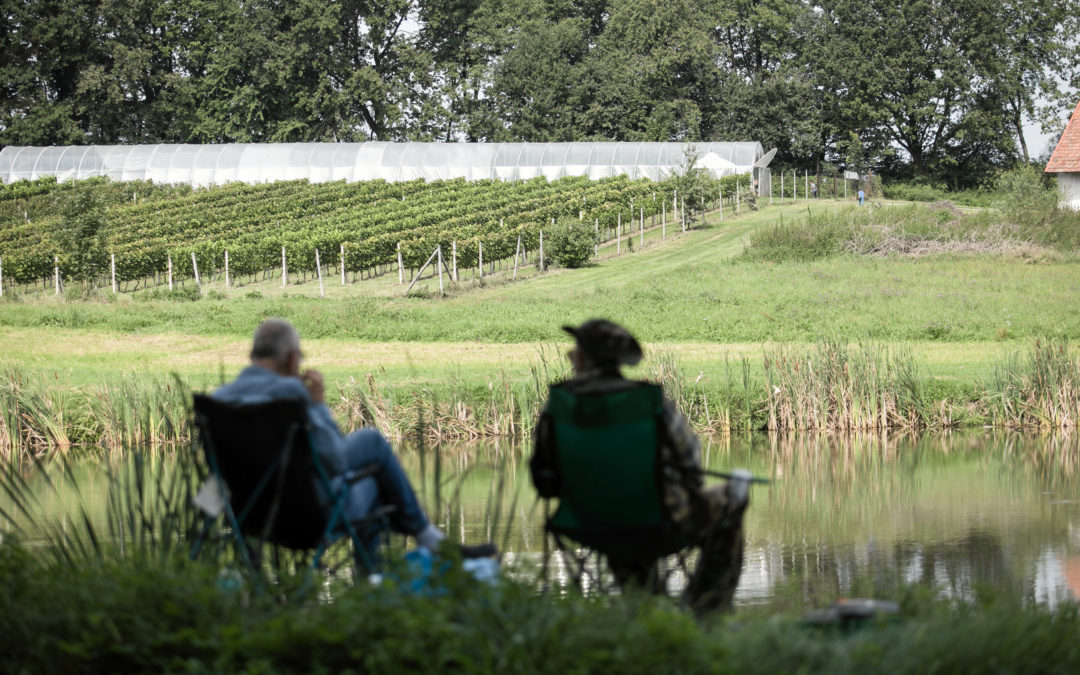Wine connoisseurs could soon be turning to Polish winemakers for high-quality products, as global warming puts traditional Southern European vineyards under threat but potentially benefits those in Poland, reports Gazeta Wyborcza.
Witold Gowin, co-founder of the Dwórzno family winery near Mszczonów, around 40 km from Warsaw, told the newspaper that he thinks warmer weather will benefit Polish wine production. In the recent warmer years of 2016 and 2019, the grape harvest at Dwórzno began earlier than usual – in the first half of September.
“Fruits ripen better, more sugar is produced in them, and so the acidity decreases,” he said. “In countries such as Italy and Spain, meanwhile, the increase in temperature is making it too warm, so their wines are starting to have a problem with acidity.”
Emil Mickiewicz, the owner of the Solaris vineyard in the Lubusz province, told Gazeta Wyborcza that less rain per year means vines are often healthier and there are fewer hailstorms which could damage crops. Western European winemakers are already having to invest in expensive anti-hail protection, but this is not a concern for Polish vineyards, he added.
However, Krzysztof Fedorowicz, from the Miłosz Winery near Zielona Góra in the Lubusz province, fears climate change could ultimately be detrimental to vineyards in the region. If it continues, he says, winegrowing in southern France and Spain will disappear by 2050, and the same could be true in western Poland.
Warmer weather may also cause other problems, such as storms, which might destroy the delicate vines. Frosts are essential for killing harmful fungi and pathogens, but “a temperature swing is dangerous when it is warm first, and then frost occurs,” said Fedorowicz.
The wine business in Poland is developing fast. Maciej Nowicki, a journalist from Ferment magazine, told Fakt, another newspaper, that standards have been improving in vineyards across Poland. “From year to year, there are more and more great wines that are impressive also abroad and among tourists visiting our country,” he said.
“Even in the largest vineyards, the standard is manual harvesting and selection of grapes, avoiding the use of chemical plant protection products or pesticides, naturally responding to the growing demand for healthy and ecological products.”
But Poland still has a lot of catching up to do if it is to become a wine heavyweight. According to Polish Agricultural Property data for the 2018/2019 marketing year, only 1.3 million litres of wine were produced in the country. These figures are dwarfed by traditional wine producers Spain, France and Italy, which produced 54.8, 49.1 and 44.4 million hectolitres of wine respectively, reports Fakt.
Although Poland has traditionally been a vodka rather than a wine culture, parts of the country, particularly in the west, have a long and almost unbroken history of planting vineyards, notes sociologist Ewa Kopczyńska in her article “Wine Histories, Wine Memories, and Local Identities in Western Poland”.
“Interest in winemaking is increasing,” says Kopczyńska, although it is “mostly a semi-amateur practice based on limited experience and self-taught knowledge…for consumption by family, friends and guests.”
W Polsce nastał czas na wino. Dynamicznie przybywa upraw winogron i producentów tego trunku. https://t.co/U05Kig7ctf pic.twitter.com/Ng5wIBPiql
— Gazeta Wyborcza.pl (@gazeta_wyborcza) June 18, 2016
Wine consumption is also increasing among Poles. According to Kopczyńska, the figure stood at 2.7 litres per capita in 2011, compared to just 1.06 in 1996. Research from CBOS, a pollster, showed that wine was the preferred alcoholic drink of 25% of Poles in 2019, up from 20% in 2007 (in the same period, beer fell from 44% to 39%, and vodka from 24% to 16%).
Climate change has been a much discussed topic in Poland – and indeed “climate” was voted as one the Polish words of the year for 2019. Polish youngsters have joined the global climate strikes, but the government’s response remains mixed. A new climate ministry was established in November, but Poland remains the only country not to have signed up to the EU’s new climate neutrality targets.
Main image credit: Jakub Wlodek/Agencja Gazeta





















